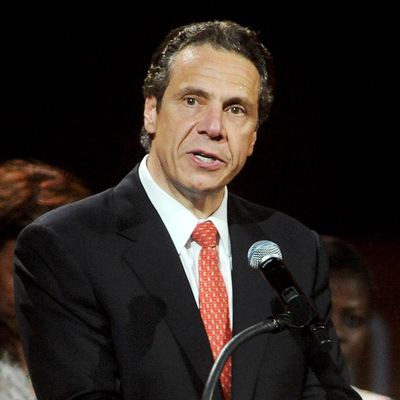
The Times’ 6,500-word front-page story exploring Governor Andrew Cuomo’s Moreland Commission machinations was terrific reporting and a fun read. The commission was empaneled in 2013, by Cuomo, to probe corruption and pressure the legislature to enact ethics reform, and it wielded subpoena power. The Times story depicted the governor and his staff trying to curb Moreland inquiries that might cause Cuomo political trouble.
Yet, in some ways, the more fascinating piece of writing is the 13-page response to the Times’ questions. It is unsigned; on the first page, addressed to reporter Susanne Craig, it says, “We are writing … ” and “We think,” and no doubt the missive was a joint, heavily lawyered effort. But the tone, and the thinking, is unmistakably Cuomo’s.
There are the muscular denials (“The premise is legally, ethically, and practically false”). There are the twisty, almost-convincing definitions of what “independence” and “interfered” mean. There are history lessons. There are the inside-Albany jabs (subpoenas must be issued on some rational basis, “not just … to appease a newspaper columnist”).
But the key sentence is on page 10: “The Moreland Commission was formed by the Governor for a specific purpose — to get legislation passed dealing with the legislature.”
Cuomo would have saved himself a great deal of his current publicity headache if he’d been that publicly explicit all along. Instead he said things like, “We need legal changes to better empower the prosecutors.” And, in the quote the Times used most damningly, after detailing how a top aide to the governor objected when the commission wanted to look into groups with ties to Cuomo: “Anything they want to look at, they can look at — me, the lieutenant governor, the attorney general, the comptroller, any senator, any assemblyman.”
Certainly, though, the legislature knew that it was the real target, and it was under no illusions that the commission was truly independent of the governor. If Cuomo’s career has shown anything consistent, it’s that he will use every lever at his disposal to exert power and control. As state attorney general, Cuomo affected political change by brandishing the threat of legal punishment, and he hasn’t been eager to give up that tool.
To an extent, Cuomo’s tactics are necessary in a political culture entrenched in decades of self-dealing. The governor did, in fact, tighten some ethics laws by waving the hammer of the Moreland Commission. But he might have gotten the same changes through less dramatic means, and by being excessively clever, Cuomo has made the whole exercise look like an election-year ploy. Though public outrage about all this is unlikely to rise to the level of, say, Bridgegate.
More worrisome for Cuomo is that he seems to have made an enemy who possesses his own legal weapons. When the Times asked the governor about Preet Bharara, the United States attorney for Manhattan, following up on the Moreland Commission’s work, the response was that “it would be inappropriate for us to comment.” Chances are that Bharara will want more complete answers, whether written or under oath.





























